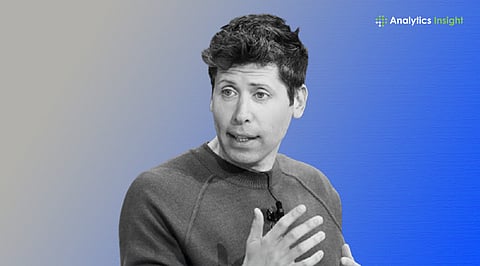

Sam Altman sits at the epicenter of the most expensive gamble in tech history. With OpenAI now valued at $300 billion following a record-breaking $40 billion funding round, he must perform an intricate balancing act: maintaining investor confidence while candidly acknowledging competitive threats that could undermine the entire AI narrative. His recently leaked internal memo warning employees about Google's competitive resurgence and slowing revenue growth reveals the treacherous tightrope walk required to manage expectations when burning billions.
The numbers tell a stark story. OpenAI lost $5 billion in 2024 despite generating $3.7 billion in revenue, spending $2.25 for every dollar earned. Projections suggest the company will burn through $115 billion cumulatively through 2029 before achieving profitability, an unprecedented capital consumption that dwarfs even the most ambitious tech ventures of previous eras. Yet Altman has convinced investors, including SoftBank, Microsoft, and Nvidia, not only to tolerate these losses but to embrace them as necessary costs of dominance.
His strategy relies on reframing catastrophic burn rates as strategic investments in an inevitable future. Where traditional CEOs promise margin improvements with scale, Altman has inverted the formula; each new ChatGPT user adds compute-heavy costs rather than efficiency gains. The leaked memo's admission that AI's hype cycle is contracting represents a calculated risk: by acknowledging slower near-term growth internally, Altman builds credibility with employees while simultaneously raising external capital at ever-higher valuations. This dual-track communication strategy allows him to prepare his team for operational discipline while assuring investors that long-term superintelligence goals remain intact, even amid rumors of hiring freezes.
The promises Altman can still make center on optionality rather than profitability. OpenAI's 500 million weekly ChatGPT users and projected 2025 revenue of $12.7 billion highlight market leadership in foundation models. Investors aren't betting on discounted cash flows but on the thesis that whoever controls the base layer of AI will dominate the ecosystem above it. Altman's recent infrastructure deals, including a $38 billion commitment with Amazon Web Services and partnerships that diversify beyond Microsoft, signal aggressive capacity-building that reinforces this narrative of inevitable dominance.
Yet, certain promises must now be walked back. The trajectory from growth-at-all-costs startup to operationally disciplined enterprise is a major shift. Altman's transparency about competitive pressure from Google and Anthropic contradicts earlier suggestions that OpenAI is enjoying an unassailable position. The acknowledgment that revenue growth might collapse to just 5% shatters the hypergrowth story once justified previous valuations. His challenge is recontextualizing these admissions not as failures but as realistic adjustments in a maturing market.
The investor pressure intensifies when examining the restructuring required to access this capital. OpenAI recently completed its transformation from a nonprofit-capped structure to a public benefit corporation, with Microsoft receiving 27% ownership for its $13.8 billion investment, a stake now worth nearly $80 billion on paper. Existing investors who decline to participate in future rounds face dilution as Altman requires tens of billions more to honor commitments to suppliers like Oracle and Nvidia. This creates a self-reinforcing funding cycle in which early believers must keep betting or risk watching their positions erode.
Altman's unusual lack of equity ownership in OpenAI, he holds no shares and makes just $76,001 annually, paradoxically strengthens his position with investors. Without a personal financial stake, he can credibly claim mission-driven motivation for pursuing superintelligence regardless of short-term financial pain. His $1.9 billion personal fortune comes entirely from external investments in companies like Helion Energy and Reddit, creating separation between his wealth and OpenAI's fortunes that may actually enhance trust.
The ultimate test of Altman's investor management will come if OpenAI fails to reach its projected $200 billion in annual revenue by 2030 or if competitors like Google and Anthropic accelerate faster than anticipated. His leaked memo suggests he's preparing stakeholders for this possibility by emphasizing that "we are not invincible" while simultaneously arguing that focused execution on superintelligence remains the winning strategy. Whether this transparent vulnerability proves strategically brilliant or fatally honest will determine if Altman's unprecedented capital bonfire yields revolutionary returns or becomes the costliest cautionary tale in technology history.
